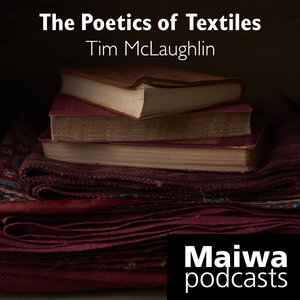Maiwa East has just received a container. We've unpacked hundreds of items. After looking them over we've taken photos of five special pieces to give you an idea of what has arrived. Each piece is unique. Most are old. All have personality.
 1) Featured in the top photo is a large teak cabinet with a glass-window side-door. The cabinet has a clear finish and a classic paneled look. Price: $499.00.
1) Featured in the top photo is a large teak cabinet with a glass-window side-door. The cabinet has a clear finish and a classic paneled look. Price: $499.00.
 2) The second item is set of teak drawers with brass handles. Based on an old document cabinet this piece is perfect for storing clothing or textiles. It also makes a wonderful feature piece for the kitchen pantry or hallway. Price: $699.00.
2) The second item is set of teak drawers with brass handles. Based on an old document cabinet this piece is perfect for storing clothing or textiles. It also makes a wonderful feature piece for the kitchen pantry or hallway. Price: $699.00.
3) The third item is a large teak cabinet with double mullion window-doors. It is a classic look to showcase books, folded textiles or curiosities. This piece is so beautiful you may be tempted not to fill it so that the warm tones of polished hardwood show through. This cabinet is just over five feet tall. Price: $899.00.
 4) A old hammered brass pot with intricate detail pattern work. This piece has considerable character. It functions well as a base for dried arrangements or as a featured item on a shelf or nook. Prices range from $59.00 - 89.00.
4) A old hammered brass pot with intricate detail pattern work. This piece has considerable character. It functions well as a base for dried arrangements or as a featured item on a shelf or nook. Prices range from $59.00 - 89.00.
 5) A bench with carved side panels. This piece is a wonderful combination of polished wood, distressed patina and delicate carving. For all its beauty it is also a sturdy piece that can enjoy a lifetime of regular use. It may function either as a bench (a perfect height to put on your boots) or as a coffee table. Price: $599.00.
5) A bench with carved side panels. This piece is a wonderful combination of polished wood, distressed patina and delicate carving. For all its beauty it is also a sturdy piece that can enjoy a lifetime of regular use. It may function either as a bench (a perfect height to put on your boots) or as a coffee table. Price: $599.00.
We receive containers on a regular basis holding old furniture, carved doors & thresholds, teak cabinets, coffee tables, book cases, engraved water urns, ironwork chairs and tables, furniture handpainted by the renowned Abhi Shakar and Jetu Singh, and many other items both large and small.
All hardwoods are old or reclaimed.
Maiwa East
More than you imagine
 1) Featured in the top photo is a large teak cabinet with a glass-window side-door. The cabinet has a clear finish and a classic paneled look. Price: $499.00.
1) Featured in the top photo is a large teak cabinet with a glass-window side-door. The cabinet has a clear finish and a classic paneled look. Price: $499.00. 2) The second item is set of teak drawers with brass handles. Based on an old document cabinet this piece is perfect for storing clothing or textiles. It also makes a wonderful feature piece for the kitchen pantry or hallway. Price: $699.00.
2) The second item is set of teak drawers with brass handles. Based on an old document cabinet this piece is perfect for storing clothing or textiles. It also makes a wonderful feature piece for the kitchen pantry or hallway. Price: $699.00.3) The third item is a large teak cabinet with double mullion window-doors. It is a classic look to showcase books, folded textiles or curiosities. This piece is so beautiful you may be tempted not to fill it so that the warm tones of polished hardwood show through. This cabinet is just over five feet tall. Price: $899.00.
 4) A old hammered brass pot with intricate detail pattern work. This piece has considerable character. It functions well as a base for dried arrangements or as a featured item on a shelf or nook. Prices range from $59.00 - 89.00.
4) A old hammered brass pot with intricate detail pattern work. This piece has considerable character. It functions well as a base for dried arrangements or as a featured item on a shelf or nook. Prices range from $59.00 - 89.00. 5) A bench with carved side panels. This piece is a wonderful combination of polished wood, distressed patina and delicate carving. For all its beauty it is also a sturdy piece that can enjoy a lifetime of regular use. It may function either as a bench (a perfect height to put on your boots) or as a coffee table. Price: $599.00.
5) A bench with carved side panels. This piece is a wonderful combination of polished wood, distressed patina and delicate carving. For all its beauty it is also a sturdy piece that can enjoy a lifetime of regular use. It may function either as a bench (a perfect height to put on your boots) or as a coffee table. Price: $599.00.We receive containers on a regular basis holding old furniture, carved doors & thresholds, teak cabinets, coffee tables, book cases, engraved water urns, ironwork chairs and tables, furniture handpainted by the renowned Abhi Shakar and Jetu Singh, and many other items both large and small.
All hardwoods are old or reclaimed.
Maiwa East
More than you imagine
Open Thursday, Friday, Saturday 10 - 5
Sunday 11 - 5















































